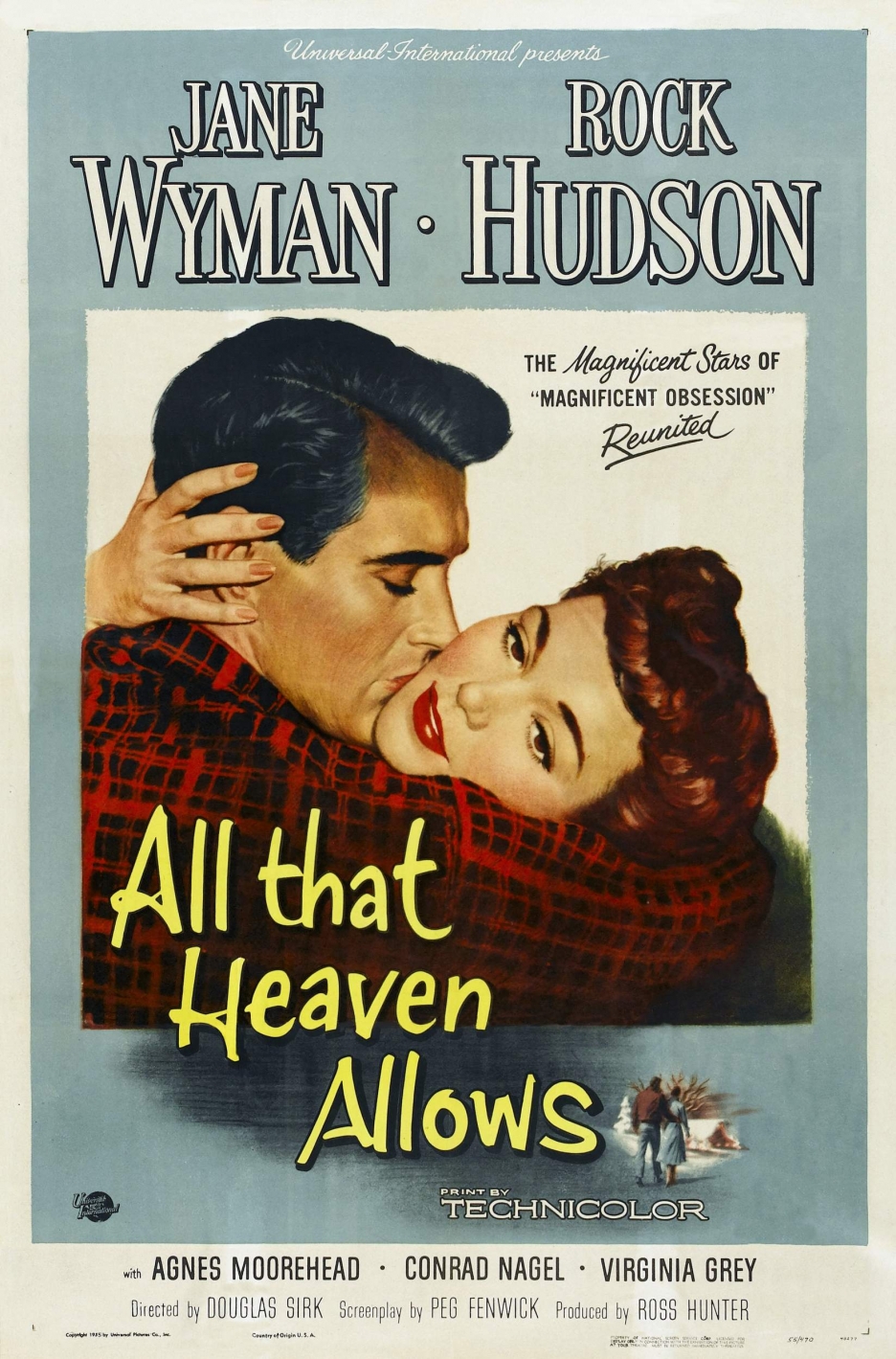
Director: Douglas Sirk
This movie was going so well. It had beautiful cinematography, the glorious 1950s Technicolour with some lovely framing. The costumes are gorgeous, particularly Jane Wyman's red dress (the 50s were restrictive, but the clothing was wonderful!). Though some of the characters are broadly drawn, especially Cary's daughter Kay who earnestly quotes Freud (sigh), they are well acted. Wyman and Hudson are great together, their mutual attraction very believable. The plot was an interesting exploration of 'older' women and their sexuality; about how overtly expressing your continuing interest in sex and handsome men is somehow unnatural. Though obviously dated in parts, I was enjoying All That Heaven Allows.
And then Hudson gets suddenly injured in an accident.
My issue was that it felt like such a huge cop-out and left no doubt about the end. Of course she is going to stay with him, he needs a nurse! No time for all that sexy romancing, there's sacrificial tending to be done. This is not to belittle the act of nursing at all. But it means that Cary's desire for Hudson's Ron has been funnelled into an appropriate outlet by the plot. I know that obstacles and barriers are necessary for tension and even plot progression, but why this one? The old random accident. It is meant to heighten the romance, and she does get to be the more active person in the relationship, but for me this was too much and rather marred my enjoyment of the film.
The film is still something you should see, though I know several fellow bloggers can't stand melodramas (a senitment I often share). But this is a beautiful looking film, and the shot of Wyman reflected in the television is quite heartbreaking. Watch with Far From Heaven, Todd Haynes' homage to Sirk, and has less groan-inducing plot twists.
The sentiment that she should be quiet and get a television to fill her life almost make me vommit. With friends like these...
ReplyDeleteConcerning the cop-out this is the fifties after all. there were limits to how far Sirk could go in liberating women. Still I agree it was most unsatisfying.
I know, I wanted to slap her friends, and especially her children!
DeleteTrue about the ending; its like the 'independent women' pictures of the 30s and 40s, where she gets to be independent, then gets partnered up in the last few minutes. Cinematic equivalent to having your cake and eating it too.